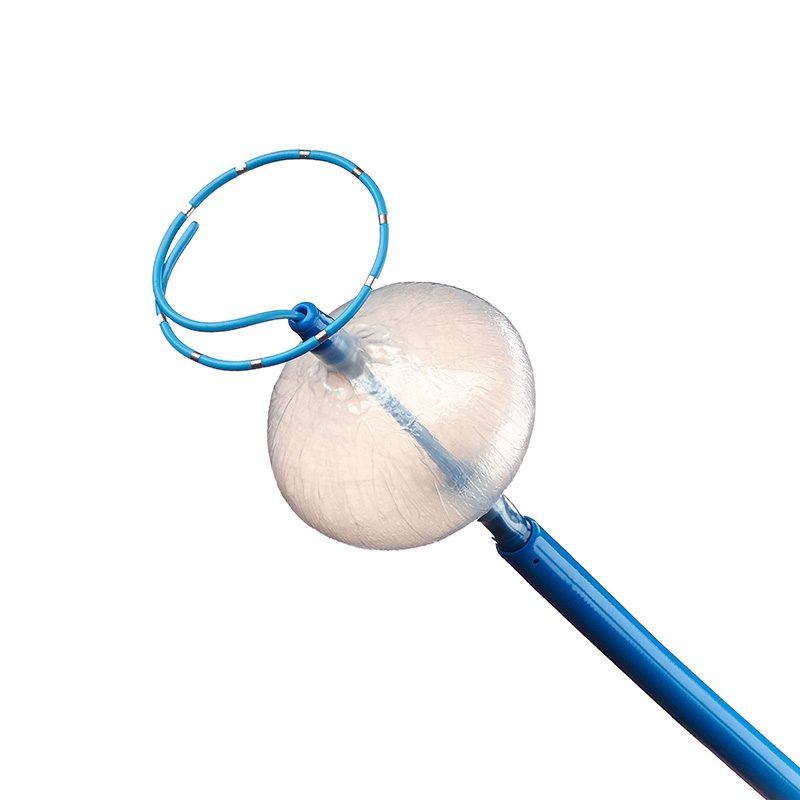The New England Journal of Medicine: 36-month data demonstrate that Medtronic cryoablation significantly reduces atrial fibrillation disease progression and is a superior initial treatment compared to drug therapy
Medtronic announced that early intervention with its Arctic Front™ Family of Cryoablation Catheters demonstrated superiority over antiarrhythmic drugs (AADs) in preventing atrial arrhythmia recurrence and reducing the rate of atrial fibrillation (AFib) disease progression as a first-line therapy for atrial fibrillation. Findings from the investigator-led 36-month PROGRESSIVE-AF study were published today in The New England Journal of Medicine and were presented as late-breaking clinical science at the American Heart Association Scientific Session 2022 in Chicago.
Results over 36 months showed that compared to AAD therapy, patients treated with the Medtronic cryoablation therapy achieved a 75% relative reduction in the rate of disease progression from paroxysmal to persistent AFib. In addition, 42.7% of patients in the cryoballoon group achieved freedom from atrial tachyarrhythmia recurrence at 36 months compared to 9.3% in the AAD group. Patients in the study received the Reveal™ LINQ insertable cardiac monitor (ICM) to track their AFib disease progression continuously over the follow-up period.

“Atrial fibrillation is a chronic and progressive problem. By starting with a catheter ablation for some patients, we have the ability to treat early,” said Jason Andrade, FRCPC, M.D., Director, Heart Rhythm Services, Vancouver General Hospital, Vancouver, Canada and principal investigator for the EARLY-AF and PROGRESSIVE-AF studies. “In the short term, this may be reflected as less recurrences of arrhythmia, improved quality of life, and less healthcare utilization. In the long run, this may translate into reduced disease progression, with subsequent reduction in the risk of stroke, heart failure and premature mortality. For the first time, these results clearly demonstrate that as an initial approach to Afib therapy, a Medtronic cryoablation is disease modifying and significantly lowers the progression of AFib.”
Drug therapy has been the standard first-line treatment for patients with AFib; however, AFib recurs in approximately half of patients treated with AADs within a year of initial treatment.[1],[2],[3] In 2021, the FDA expanded the indication for Medtronic cryoablation therapy, and it is the first and only catheter ablation device approved to treat patients as an alternative to antiarrhythmic drug therapy as an initial rhythm control strategy.1
AFib affects more than 60 million people worldwide. Without early intervention, AFib can progress[4] and is associated with a higher rate of cardiovascular admissions[5], heart failure hospitalization[6] and mortality,[7] along with a reduced quality of life[8].
“This is an exciting milestone in the treatment of AFib. Beyond the ongoing validation these data provide into the superior outcomes of a Medtronic cryoablation over drug therapy, an early approach to treating AFib has the potential to change the trajectory of disease for millions of patients,” said Rebecca Seidel, president, Cardiac Ablation Solutions business, part of the Cardiovascular Portfolio at Medtronic. “Utilizing continuous, long-term monitoring with LINQ to monitor disease progression, these data demonstrate how a Medtronic cryoablation has the durability to support long-term patient outcomes.”
The Medtronic cryoablation therapy uses cold energy delivered through an inflatable balloon to create scar tissue and interrupt unwanted electrical pathways in the heart. Medtronic has pioneered cryoablation technology, with an industry-leading and extensive body of evidence, including proven safety and efficacy in treating AFib. To date, more than one million patients have been treated with Medtronic cryoablation therapy worldwide.
About PROGRESSIVE-AF
PROGRESSIVE-AF is the three-year, long term follow up study to EARLY AF, which was a one year short term follow up study published previously in the New England Journal of Medicine (NEJM) in Nov. 2020 and presented at American Heart Association Scientific Sessions 2020.
An investigator-initiated, multicenter trial, PROGRESSIVE-AF randomized 303 patients with paroxysmal AFib who were either treated temporarily, below therapeutic threshold or were > 6 months out from use of an AAD. Compared to AAD therapy, patients treated with Medtronic cryoablation achieved a 75% relative reduction in the rate of disease progression from paroxysmal AFib (self-terminating episode lasting less than seven days) to persistent (continuous episode lasting ≥ 7 days or lasting 48 hours to 7 days but requiring cardioversion for termination). Results from the study showed 42.7% of patients in the cryoballoon group (n=154) versus 9.3% in the AAD group (N=149) achieved freedom from atrial tachyarrhythmia recurrence at 36 months. Safety events were lower in the catheter ablation group at 11.0% compared to 23.5% of AAD-treated patients. Additionally, patients treated with Medtronic cryoablation demonstrated larger improvements in quality of life and more frequently had resolution of arrhythmic symptoms (e.g., fatigue, rapid heartbeat, shortness of breath) than patients receiving AAD therapy. Most notably, rehospitalizations differed significantly between groups with 8 (5.2%) in the ablation group, and 25 (16.8%) in the AAD therapy group.
About Medtronic
Bold thinking. Bolder actions. We are Medtronic. Medtronic plc, headquartered in Dublin, Ireland, is the leading global healthcare technology company that boldly attacks the most challenging health problems facing humanity by searching out and finding solutions. Our Mission — to alleviate pain, restore health, and extend life — unites a global team of 90,000+ passionate people across 150 countries. Our technologies and therapies treat 70 health conditions and include cardiac devices, surgical robotics, insulin pumps, surgical tools, patient monitoring systems, and more. Powered by our diverse knowledge, insatiable curiosity, and desire to help all those who need it, we deliver innovative technologies that transform the lives of two people every second, every hour, every day. Expect more from us as we empower insight-driven care, experiences that put people first, and better outcomes for all. In everything we do, we are engineering the extraordinary. For more information on Medtronic (NYSE:MDT), visit www.Medtronic.com and follow @Medtronic on Twitter and LinkedIn.
Contacts:
Allison Kyriagis Ryan Weispfenning
Public Relations Investor Relations
+1-612-750-6061 +1-763-505-4626
[1] Wazni OM, Dandamudi G, Sood N, et al. Cryoballoon Ablation as Initial Therapy for Atrial Fibrillation. N Engl J Med. January 28, 2021;384(4):316-324.
[2] Kuniss M, Pavlovic N, Velagic V, et al. Cryoballoon ablation vs. antiarrhythmic drugs: first-line therapy for patients with paroxysmal atrial fibrillation. Europace. March 17, 2021:euab029.
[3] Andrade JG, Wells GA, Deyell MW, et al. Cryoablation or Drug Therapy for Initial Treatment of Atrial Fibrillation. N Engl J Med. January 28, 2021;384(4):305-315.
[4] Chugh SS, et al. Worldwide Epidemiology of Atrial Fibrillation. Circulation. 2014;129:837-847. https://pubmed.ncbi.nlm.nih.gov/31955707//
[5] de Vos CB et al. Progression from paroxysmal to persistent atrial fibrillation clinical correlates and prognosis. J Am Coll Cardiol. 2010;55(8):725-731.
[6] Wong JA et al. Progression of Device-Detected Subclinical Atrial Fibrillation and the Risk of Heart Failure. J Am Coll Cardiol. 2018;71(23):2603-2611.
[7] Piccini JP et al. Atrial fibrillation burden, progression, and the risk of death: a case-crossover analysis in patients with cardiac implantable electronic devices. Europace. 2019;21(3):404-413.
[8] Dudink E et al. The influence of progression of atrial fibrillation on quality of life: a report from the Euro Heart Survey, EP Europace, Volume 20, Issue 6, June 2018, Pages 929–934.
